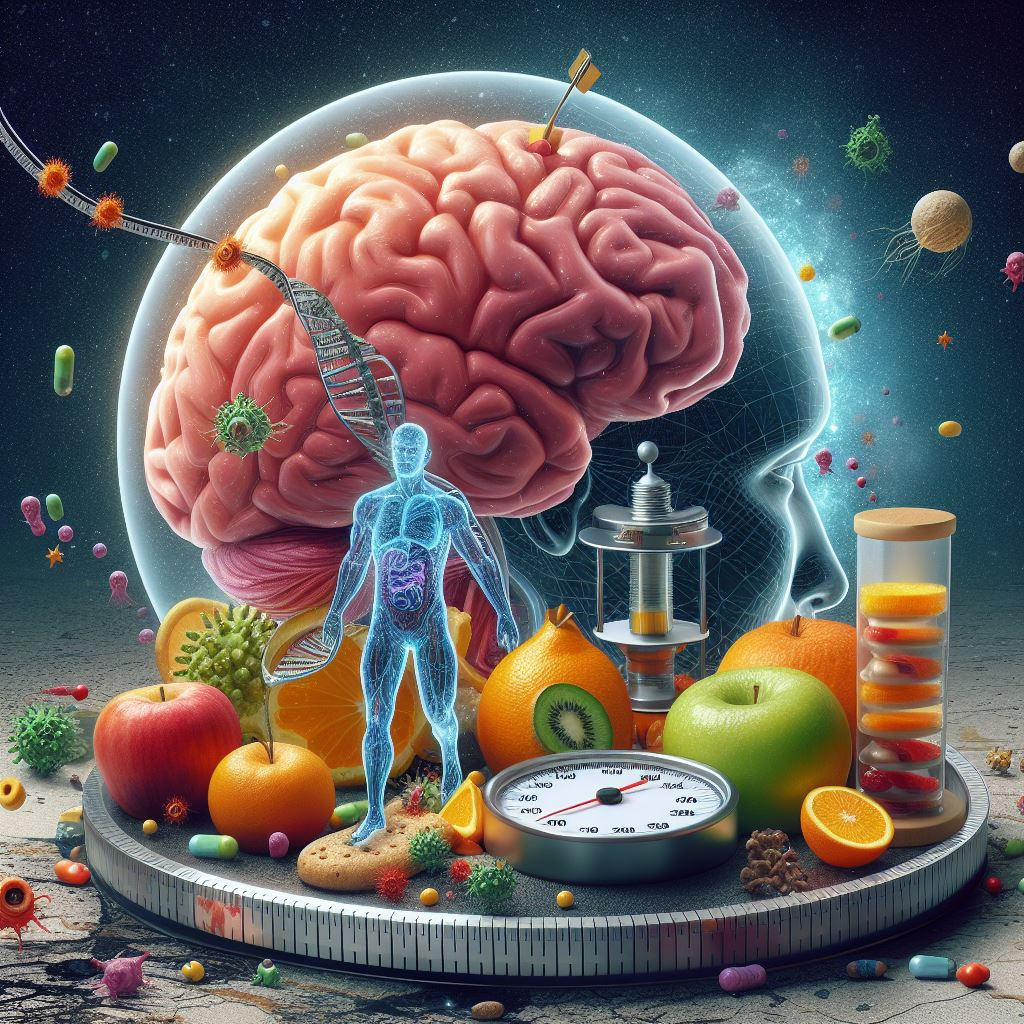The findings suggest that IER induces not only physical changes in weight and health but also dynamic alterations in brain activity and gut microbial diversity.

In a groundbreaking study led by Jing Zhou from Henan Provincial People’s Hospital, researchers in China have uncovered a fascinating web of dynamic effects on the brain-gut-microbiome (BGM) axis in individuals with obesity undergoing short-term weight loss through intermittent energy restriction (IER).
The study, published online on December 30, 2023, in Frontiers in Cellular and Infection Microbiology, delves into the intricate relationship between weight loss, brain activity, and changes in gut microbial diversity.
The Intermittent Energy Restriction (IER) Intervention:
The research focused on 25 individuals with obesity in China who successfully lost weight through a three-phase IER intervention. The first phase involved a normal diet without restriction for four days, followed by a tightly controlled diet of clinically formulated IER meals every other day, decreasing in caloric value over 32 days. The final phase comprised a 30-day low-controlled fasting period.
Notable Findings: Weight Loss and Health Improvements:
Participants exhibited significant weight loss, averaging 7.6 kg, along with sustained reductions in body mass index, body fat, systolic blood pressure, and serum levels of glycosylated hemoglobin. Additional positive outcomes included decreased diastolic blood pressure, fasting plasma glucose, total cholesterol, various lipids, and key liver enzymes at different time points during the IER.
Brain Activity Changes:
Functional MRI scans revealed consistent reductions in the activity of obesity-related brain regions, including the inferior frontal orbital gyrus, putamen, and anterior cingulate cortex, at various stages of the IER. Notably, there were no significant changes observed in brain activity in the reward circuit.
Gut Microbiome Dynamics:
During the tightly controlled fasting phase, gut microbial diversity increased. The abundance of beneficial bacteria like Faecalibacterium prausnitzii, Parabacteroides distasonis, and Bacterokles uniformis rose, while pathogenic Escherichia coli decreased across multiple time points. Correlation analyses unveiled connections between alterations in gut bacteria abundance and changes in brain activity, suggesting a dynamic interplay between the brain and gut microbiota.
In Practice: Implications for Weight Loss Strategies:
“IER induced constant, significant reductions in the activity of eating behavior-related brain regions…[and] significant, dynamic changes in the abundance of some gut bacteria. Importantly, gut microbiota alterations correlated with brain activity changes across different time points in Intermittent Energy Restriction intervention. These data suggest that the dynamic interplay between the brain and gut microbiota plays an important role in weight loss,” the authors wrote.
Study Limitations and Future Directions:
While shedding light on short-term BGM axis changes during weight loss, the study does not establish causation. Longer follow-up periods are crucial to understanding how these changes may influence sustained, long-term weight loss.
Source of Support and Disclosures:
The research received support from various sources, including the National Natural Science Foundation of China and the National Key R&D Program of China. Notably, one coauthor was affiliated with a supplement company, and another with a biotech company, emphasizing the importance of transparency in potential conflicts of interest.
Conclusion: A Glimpse into the Complex Dynamics of Weight Loss:
The study marks a significant step forward in unraveling the intricate relationship between the brain, gut, and microbiome during weight loss. The findings suggest that IER induces not only physical changes in weight and health but also dynamic alterations in brain activity and gut microbial diversity. As researchers continue to explore these connections, the implications for personalized weight loss strategies and overall well-being are promising.
In conclusion, this research underscores the need for further investigation into the long-term effects of weight loss interventions on the BGM axis, opening avenues for a more comprehensive understanding of the complex interplay between the brain, gut, and microbiome in the pursuit of healthier lives.